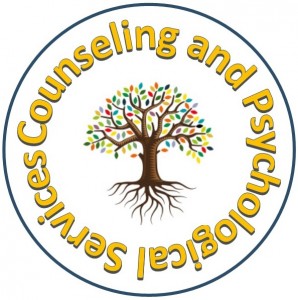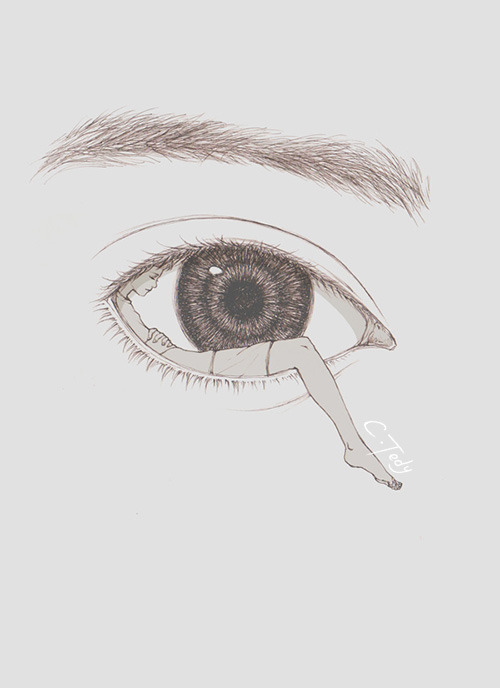The Individual's Voice
November 3, 2017
"Get over it."
"You're just asking for attention."
"People go through a lot worse."
"Stop exaggerating."
"That's life."
"It's not a big deal."
Cynthia Tedy
thoughts out from where I shut them."
- Kylie (Junior)
Today, mental health has become a more openly discusses the topic. Well-known organizations like the Nation Suicided Prevention Hotline and Association for Behavioral Health and Wellness (ABHW) are one of the many reasons it can be discussed. While these organizations differ, National Prevention Hotline more chats based while Association for Behavioral Health and Wellness focuses on multiple services for mental health. Active Minds is a non-profit organization that motivates college students to spread light on mental health. Yet, while these exist people are still hesitant to get help and share their experience. While people can look at statistics that show "they are not alone" that individual finds it hard to believe when the people around them cannot relate. Many times, statistics are said to encourage people to speak, but this makes the problem a lot more artificial opposed to humane. Mental health's importance does not come in a statistic, but the individuals whose voices have risen and those who are still silenced.
"I thought of mental health as an excuse.
When you don't want to take
responsibility for your behavior. "
- Catherine (TCNJ Alumni)
"It's easier to talk to people who
have similiar issues as you do."
-Lia (Sophomore)
The College of New Jersey along with many other colleges have an emphasizes on mental health with the support of CAPS, a counseling, and psychological service. While confidential and well-known throughout the college people still hesitate to receive help out of fear. TCNJ is not an exception even if it has a mental health service available for students. Catherine, a TCN Alumni who graduated in 2017 mentioned how it took her almost a semester and a half to go to CAPS. Since she did not connect with the therapist it took her two and a half years to go back for group therapy. Kyle, a Junior said she started to fall, her freshman year but it was a workshop instead of individual therapy. Lia, a sophomore had a similar experience. She started an anxiety workshop freshman year but continued because she found it helpful. Yet, many people hesitate for a long time to get acknowledge their problem and get help. Even though people are more open to mental health why so many find it difficult to get help? While the conversation since the stigma has become less taxing that does not mean they don't affect people to this day. People have very similar mindsets when they decide to not receive help, which stems from the constant opinion that people with mental health issues are exaggerating it.
Exaggeration is a very common stigma when it comes to mental health. Since the pain doesn't appear physically it takes more for people to believe you. Prior to CAPS Catherine mentioned that if she went it would be an excuse for her behavior. She mentioned how she found it to be an exaggerated and difficult to solve. While her hesitation to begin CAPS does support it is difficult to solve she no longer felt she was "exaggerating." She says "It's been a complete one-eighty" after she started getting help. "I think taking care of yourself mentally is more important than taking care of yourself physically just because a mental state of mind controls pretty much all your body." She now acknowledges mental health to be a real problem and even more important than physical health. It gave her a more detailed perspective of the problems at hand since she met others who experienced it. Kylie, even mentioned how when she started group she realized she "wasn't alone, the feeling was good. The group listened because they all cared." Even though statistics show people are not alone those do not show someone's personal experience. It doesn't show the person behind the numbers or how they are affected.
"People say you are not alone, but it's hard to believe when you feel like you are the only one."
-Kylie (Junior)
Everyone interviewed mentioned how they do not regret attending CAPS, even though the stigma's held them back. It took Catherine a while to go and when she did she had a bad experience because she didn't connect with her therapist which is very important. The success of the session depends on the connection between the client and therapist. "I went to three or four different therapists before settling on one" Kylie mentioned. Mental health isn't a simple issue, its complex and takes years to of courage to combat. Yet, at the end, they all were happy they went. "I'm not afraid anymore" was one of the last quotes Kyle said and it summons up many individuals' experiences.
because I don’t consider it a personal
problem, it’s out on the table.” "- Kylie (Junior)
Hello, world







